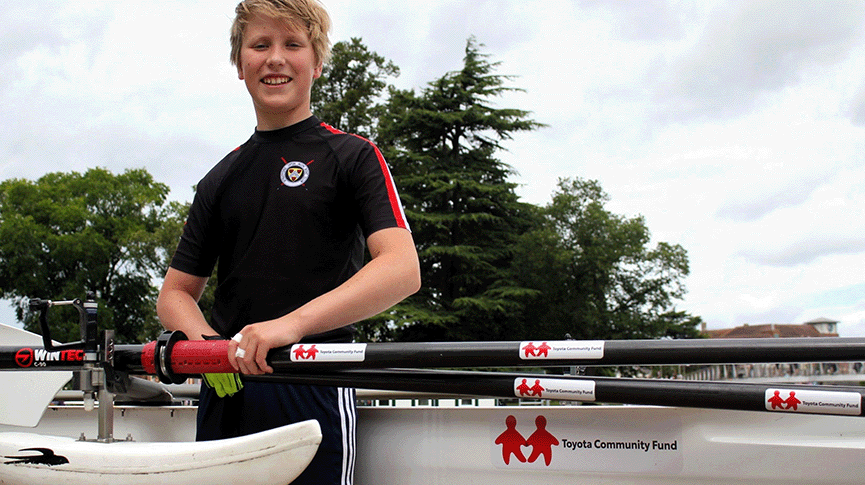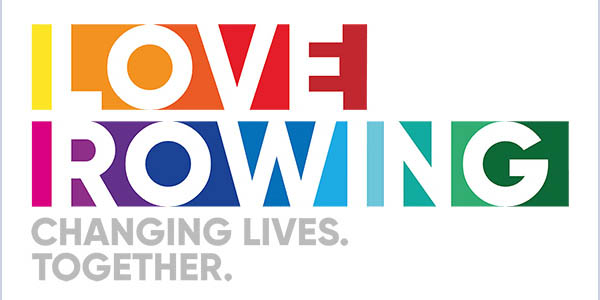Fundraising and sponsorship
Including how to write successful funding applications to grant-giving bodies

Start by making sure you’re clear about the difference between fundraising and sponsorship.
Fundraising is about raising money to pay for what you want to do. While that might deliver benefits that the funder supports, such as better opportunities for community sport, you’re defining the project.
Sponsorship, on the other hand, is a partnership. Yes, you’re gaining a financial benefit, but you’re also under an obligation to deliver value to your sponsor such as brand enhancement or alignment, advertising and employee engagement. For this reason you need to be clear at the outset about what you can offer as well as what you want.
Fundraising from grant giving bodies: How to write effective funding applications
Compiling funding applications can take time, even for some small grant applications. Therefore, you must research and select the most appropriate funder for your project or organisation.
Before you start an application, here are some key pointers to read on the funder’s website:
- Objectives
- What they will and will not fund
- Thematic streams/Priority areas
- Eligibility criteria
- Read through any sample application forms the funder may have posted on their website
- Check the deadline for submission and see if you can realistically achieve this
- Consider whether the size of the award will justify the cost of making the application.
Funders will always have criteria; here are some examples of their criteria:
- Annual income of your organisation
- Location of your organisation or project
- Legal status of your organisation, i.e. Charity, CIC (Community interest Company)
- Total cost of project
- Size of grant you’re applying for
- Length of time the organisation has been running
- Match funding required.
You must meet the specified criteria. If you do not meet the criteria, do not apply!
Do you meet the criteria?
If you struggle to answer each question, do not apply. For example, if the maximum word count for a question is 500 words and you struggle to reach half of this, do not apply. The word count is an indication of the amount of information funders expect to be included per question.
If you cannot write about your project in the sections provided by the funder, then your project may not be the type of project they are looking to fund.
When writing your grant application, make sure you cover these key areas:
- Provide detail: Who are your current beneficiaries, and how many beneficiaries does your club engage with weekly, monthly, and yearly?
- Demographic profile of your beneficiaries: Young people? Older people? People from disadvantaged backgrounds?
- What current work are you delivering, and what would you like to change with this funding? This helps to set the scene and give the funder some background on your club and what change is needed.
- Always remember to explain to the funder if your application is to fund existing work or a new project.
- Explain the impact of this funding you are requesting: Will it engage those with disabilities? Will it allow people to live healthier, happier lives? Will it provide better mental health support to those engaged?
- Provide relevant statistical information and a reference to any reports; this demonstrates that you have conducted your research and highlighted a need for your work.
- Demonstrate your club’s capabilities; including work you have delivered and any partnership work. Reference projects you have or are currently delivering, e.g. Learn to Row. Explain what the impact of these projects has been.
The specific grants listed on our Funding Sources page will mostly have forms that ask for any information they will be using to consider the application.
Raise money with a club lottery!
Affiliated clubs get 20% off subscriptions to Clubforce's online lottery tool.
Fundraising through personal donations
Personal donations from club members (including past members) and their friends and families can fund smaller projects. There are all sorts of activities you can organise to generate these such as sponsored rows, club life memberships (which brings forward membership revenue), regular club lotteries, ‘name a brick’ in any building work, and auctions of promises or raffles.
Sponsorship
Take a targeted approach. For each potential sponsor, ask yourselves, ‘What does company X want or need to achieve and how can we help it achieve that objective?’ Not only will company’s money be used more effectively, but the club will be more attractive to other companies. Keep thinking about profile and media coverage.
A company should be getting at least £1 of publicity for every £1 of sponsorship.
Often, sponsors are found through personal contacts, but that doesn’t reduce the importance of being able to offer their company value.
How much to ask for?
Be specific in asking for money rather than vaguely saying ‘anything you could give would help’. For example:
- Name a specific sum – ‘We are writing for a donation of £1,000 towards this work’.
- Give a range of amounts – ‘We are aiming to get one donation of £500, one of £200 and three of £100 to complete our total of £2,000 for this project. This shows roughly how much you want from each sponsor.
- Quote other sums already pledged – ‘We have already had a payment of £500′.
- Produce a shopping list and highlight one that you think the donor would be interested in paying for. The idea is to give a range of prices that people can afford and something specific and relevant to fund.
Read our guide to sponsorship and partnership marketing, which summarises the British Rowing Partnership Principles and supplements rule 1-9 in the British Rowing Rules of Racing, which states that there is no restriction on advertising material unless it is inappropriate or harmful to the image of rowing or would impair recognition of a crew by its club colours.
Sponsorship tips
- Demonstrate that you get coverage as a club – how many followers do your social media channels have? How often do you post? What are your post engagements?
- Approach a company for advertising (on boats, kit, trailers, or at competitions you run, for example) then give them information on target audiences. Get them interested, then draw them in. Show them how much publicity you get.
- Keep an accurate record of who you have approached, the response, whether it just wasn’t the right time for the company or whether the club’s aims and objectives did not match the company’s.
- Good sponsorship letters contain realistic, itemised targets and demonstrate the attraction and value to the sponsor. Bad sponsorship letters are vague, contain little to attract the sponsor and are not followed up by the originator.



